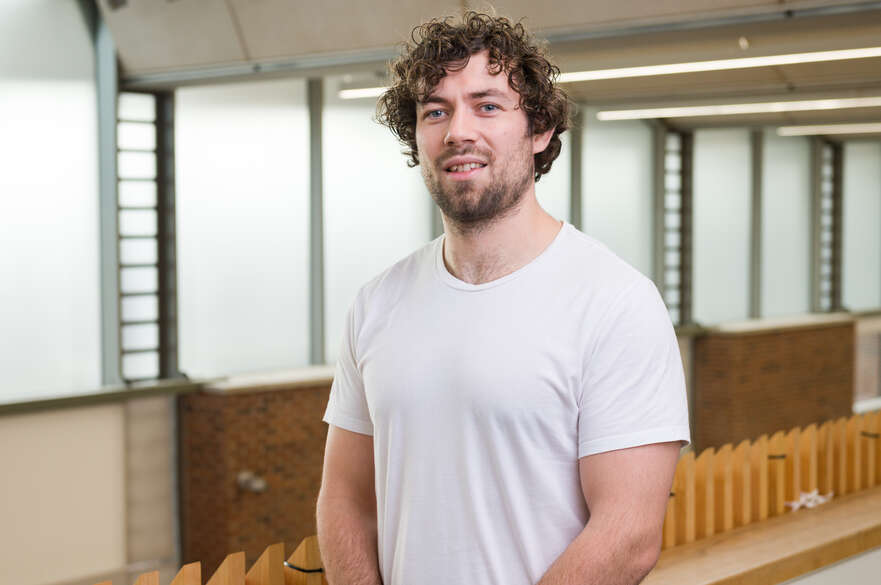Role
Daniel Dimmock is an Academic Associate working within the Biochemistry team at NTU. He serves as a co-course leader for both Biological Sciences and the Foundation Biosciences courses. Additionally, he contributes to a variety of modules throughout biosciences, leading labs, supervising projects, delivering lectures and seminars, and providing assessment and feedback in both undergraduate and postgraduate courses.
Career overview
Daniel Dimmock is a versatile professional with a background in pharmacology, professional research, clinical trials, teaching, and academia. In 2012, he began studying BSc Hons in Pharmacology at NTU, graduating in 2015. He then stayed on at NTU and went on to study an MRes in Neuropharmacology, researching arachidonic acid-based inflammatory signalling and its impact on amyloid protein production in the brain.
Following his academic pursuits, Daniel worked in Phase 1 clinical trials, contributing to the development and delivery of trials. He then transitioned to high school science teaching before returning to Nottingham Trent University in 2019 as an Academic Associate. In his current role, Daniel is a co-course leader for Biological Sciences and Foundation Biosciences courses, contributing to labs, projects, lectures, and seminars at both undergraduate and postgraduate levels.
Research areas
Daniel's research interests cover the functions of non-coding RNAs as components of the immune response. This includes mechanisms such as intercellular transfer of microRNAs in vesicles, direct interactions with of non-coding RNAs with the RNA of viruses to inhibit their replication and his current research into RNAs as activators of the innate immune system through direct interactions with immune receptors.
This current research, under the supervision of Dr. Carl Nelson, investigates how microRNAs can recruit inflammation through the direct activation of toll-like receptors 7 and 8. This project aims to understand the particular sequences of RNAs that can activate the receptors, discover novel TLR-activating microRNAs, observe how this pathway of activation may differ from the classical pathogen-driven activation of the receptors, and investigate how contributing factors to severe asthma may drive the release of miRNAs that can induce inflammation through the TLR 7 and 8 receptors, contributing to pathology.
His research employs a combination of tissue culturing, proteomics, extracellular vesicle isolation, fluorescent microscopy, bioinformatics, scanning/transmission electron microscopy, transfection, and the design of co-culture models to investigate the intercellular transfer of non-coding RNAs via the transfer of extracellular vesicles.
External activity
- Advance HE (Fellow of the Higher Education Academy)
